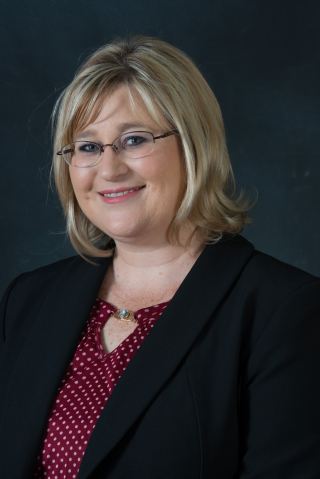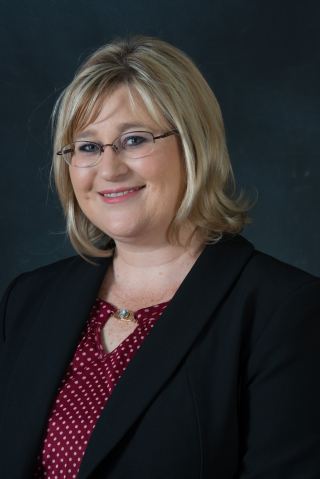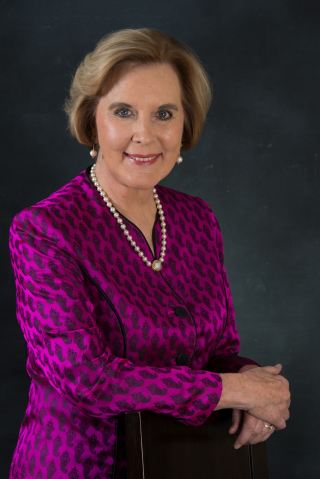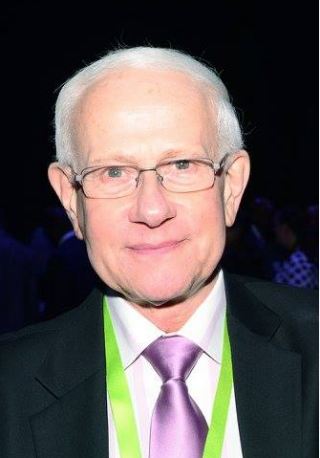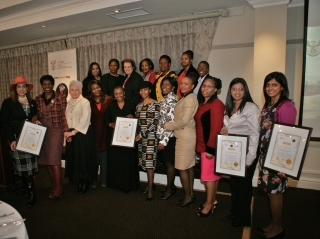All work and no play is a no-win for business
By Michelle Moss*, Director at Signium Africa (www.signium.co.za)
Did your employees enjoy the chance to play over December? Why stop them now just because business has started up again? Current research suggests that organisations that provide opportunities for their staff to participate in playful, fun activities inside the workplace, reap various rewards. These benefits extend to the employees, their teams and the company itself. Games, or any other stimulating activity done for the purpose of amusement, can actually help workers become more productive. Even if it’s just a foosball table in the canteen, a short recess from work for a lively match with a colleague can break the monotony of repetitive duties or alleviate the stress of continuous problem solving. A play-friendly workspace can therefore refresh staff, boost morale and increase job satisfaction.
According to one survey from Salesforce, 86% of executives and employees attribute project failure to lack of communication and collaboration. When playing, workers have the opportunity to mingle, have fun together and challenge each other. That alone strengthens social bonds, enhances communication, and fosters collaboration - something companies spend millions on achieving through specially organised teambuilding events that pull workers away from the office completely. Having more cohesive teams, manned by happy employees, is a winning formula for organisational productivity and therefore profitability. However, although there’s no need to turn it into a games room, play should not stop at the boardroom door. Games have been shown to promote creativity, especially in meetings where it’s the skill needed most for developing new strategies. Just placing a piece in an unfinished jigsaw puzzle during a break may be all the stimulation the executive mind needs to put together the solution to a business problem. In agreement with a frequent complaint among staff, the latest Gallup survey for Sub-Saharan Africa reports that only 17% of employees in this region feel engaged at work - less than one fifth of its workforce. Yet, further research reveals that engaged teams contribute to 21% greater profitability on average. Engagement is therefore not only essential to retaining talent but also improving earnings. Instead of playing incidentally, companies should embrace a balanced work-play culture. That can be a powerful tool for recruiting and retaining talent, and newer generations of workers are especially attracted to such an environment.
While you’re at it, just for fun, try playing a game of 30 Seconds or Trivial Pursuit with candidates at their interview. If fact, more companies than ever are pushing for valid, reliable and culture-fair game-oriented employee assessments when evaluating job applicants. Unfortunately, South Africa is currently a little limited in using these techniques to their full benefit because of labour regulations. However, there are companies vigorously working on improving the situation.
To get the full benefits of a play-at-work culture, it’s important to develop a sensible strategy. A foosball table may become a distraction and a single jigsaw puzzle might end up gathering dust. So an integral approach is needed where play opportunities flow naturally through business processes, are voluntary and augment work rather than replace it.
*Michelle Moss is a Director at Signium Africa (previously Talent Africa), a leading South African-based executive search and talent management company servicing sub-Saharan Africa. www.signium.co.za Tel: +27 11 771 4800 Issued By: Tale Spin Media & Marketing Zelda Williams 082 461 0689
CQ Is The New EQ For Executives
By *Michelle Moss, Director: Assessments at Signium Africa
Second only to emotional intelligence (EQ), cultural intelligence (CQ) is fast becoming one of the most in demand skills for executives in today’s culturally diverse world of business. The growing need for CQ is just one of the consequences of globalisation.
It’s true that companies are setting up more bases in foreign countries than ever. But their own societies are simultaneously becoming more culturally diverse, as foreign citizens migrate in search of better career opportunities and lifestyles. This means that culture is no longer a minor concern for executives. It’s a strategic imperative, and high-CQ leadership is needed to intelligently address this trend. So what is cultural intelligence? And is it possible to develop it in your executive team? The simplest and most used definition was developed by researchers Ang and Van Dyne in 2008, as “the capability of an individual to function effectively in situations characterised by cultural diversity.”
They also suggested that CQ is structured in four dimensions, namely, metacognitive, cognitive, motivational, and behavioural CQ. These have been adopted, more or less, in subsequent research and can be summarised as follows. Metacognitive CQ is “an individual’s level of conscious cultural awareness during cross-cultural interactions”. Cognitive CQ is “knowledge of norms, practices and conventions in different cultures that has been acquired from educational and personal experiences”. Motivational CQ is the “capability to direct attention and energy towards learning about and functioning in situations characterised by cultural differences”.
Finally, behavioural CQ is the “capability to exhibit appropriate verbal and non-verbal actions when interacting with people from different cultures”. In summary, executives must be aware of cultural differences, understand them, be willing to learn more, and act in relation to that understanding. What the above establishes in no uncertain terms is that CQ is not an innate competency. It can be acquired through training and, most importantly, exposure to the culture in question.
The benefits of increased CQ are becoming more obvious by the day. Most CEOs agree that as technology takes over many traditional business functions, success will be defined by how well people interact with each other. They also agree that diverse management teams foster innovation because they bring important cultural perspectives to the table.
However, differences often breed conflict and companies who fail to foster CQ may find themselves unable to manage that diversity. In fact, CQ and innovation are closely correlated. Consequently, they risk losing their competitive edge and corporate sustainability. According to a survey by the Economist Intelligence Unit (EIU), 70% of international ventures fail because of cultural differences. Another source reveals that 90% of executives from 68 countries say that cross cultural management is their toughest challenge.
Culture is becoming so critical to business that in some organisations, astute CEOs are heading up their diversity and inclusion practice groups. It is in every business’s interest, whether they operate locally or internationally, to nurture CQ in their enterprise, especially in their executives and C-suite. If that critical talent cannot be developed in house, it should be acquired externally through executive search.
*Michelle Moss is a Director: Assessments at Signium Africa (previously Talent Africa), a leading South Africa-based executive search and talent management company servicing sub-Saharan Africa.
Website: www.signium.co.za
Tel: +27 11 771 4800
Measured Ability Group Holdings South Africa (MASA) measuring up to high industry standards
Measured Ability Group Holdings South Africa (MASA) Is a decade old this year, still a relatively new brand name in the marketplace, however the directors and their staff were the progenitors of labor outsourcing in South Africa having been in the business of recruitment and outsourcing for close on four decades.
To put it in perspective; when the founding company, Greys Personnel, was established in 1982 Michael Jackson had just released his groundbreaking album “Thriller”, Argentina invaded the Falkland Islands and went to war with the UK, FW de Klerk became the new leader of the National Party and a bomb exploded in the ANC headquarters in London.
The company now has a national footprint with a Durban recruitment agency, Port Elizabeth recruitment agency as well as recruitment agencies in Johannesburg, Pretoria, Cape Town, Pietermaritzburg, Bloemfontein, East London and George.
When you look at it like that, you realise that MASA stands on foundations that have stood the test of time. It’s a company that has its roots embedded in permanent personnel recruitment and has evolved admirably to encompass contract recruitment, labour outsourcing as well as nursing services.
In 2012, the business merged the strength of Greys Personnel that operated in the permanent placement market with the depth of experience of Western Star Outsourcing which operated in the contract and outsourcing market and rebranded as MASA to pull together a company that comprises five distinctive business units.
The 5 pillars of business are:
Measured Ability SA (MASA)
Blue collar labour hire / labour broking / temporary employment / temporary staffing / permanent blue collar recruitment; incorporating payroll services, site management, human resources and industrial relations, risk mitigation, insurance and labour cost reductions.
Greys Recruitment
Permanent contingency placements and temporary recruitment / recruitment process outsourcing / retained search / in-house recruitment services / recruiter on demand / advertising response handling; incorporating job profiling, professional search and vetting, compliance and verification, payroll, human resources, reporting and advertising.
MASA International ( Worldwide temporary and permanent recruitment)
Worldwide contingency recruitment inclusive of offshore placements: incorporating local, domestic and international candidate sourcing, compliance training and certification, mobilization and tax compliance.
Greys Nursing Services
Specialized staffing solutions for medical staff hire and healthcare industry; i.e. homecare, care givers, frail care, nurses for hire, doctors for hire, old age homes, hospital staffing, recruitment and vetting, workforce and incident management, training and performance management.
MASA Training AcademyOffering SETA accredited training, learnerships and skills programs.
Where MASA has the competitive edgeMASA has fine-tuned its service offering over a period of close to four decades and established itself as a leader in the recruitment and outsourcing industry despite tough competition and a heavily legislated labour market. The company is a BEE Level 4 Contributor and is certified with the relevant governing and institutional bodies.
MASA operates within a flat business structure which means clients have direct access to the main decision makers and response time to queries is fast and efficient.
Don’t be distracted from your pursuit of executive success
By Auguste (Gusti) Coetzer* (www.signium.co.za)
A growing mismatch is becoming apparent between the behaviour of international corporate achievers and their South African counterparts. Offshore, upwardly mobile executives increasingly embrace ‘Deep Work’ and reduce distractions as they strive for quality outcomes and the type of successful track record that ensures progress up the corporate ladder.
In contrast, local executives often spend hours in inconclusive meetings, happily endure distraction via smart devices and seem to accept the curse of constant connectivity and 24/7 availability.
We see distraction aversion overseas versus distraction acceptance locally. What prompts the mismatch? The catalyst was probably Professor Cal Newport’s ‘Deep Work: Rules for Focused Success in a Distracted World’. In the book and several academic papers, he defined deep work as professional activities in a state of distraction-free concentration that push cognitive abilities to their limit.
These efforts create new value, improve your skill and are hard to replicate. Writer and entrepreneur Jason Fried also published several books on the need to exclude distractions as a prerequisite for higher personal productivity and the enhanced ability to deliver at an elite level.
The literature continues to grow as consultants and writers contribute how-to articles on the ways in which achievers can limit distraction, boost productivity and inject meaning and pride into their work through elegant outcomes and quality improvements. Ideas include ‘Do Not Disturb’ signs outside the offices of those committing time to deep work, switching off cell phones, leaving work promptly, limiting the pester power of colleagues who fail to respect personal time and cutting down on meetings and the time spent on emails.
Study of corporate realities in a distracted world highlight worrying trends. For instance, in some cases the email in-tray set daily priorities rather than business imperatives.
Deep work’s attractions were then underlined by studies into the real cost of multi-tasking and revelations that productivity does not rise, but falls as a result of ‘shallow work’. One study suggested task-switching could cut productivity by 40%. Scientists also revealed that dopamine, a substance found in our brains, is depleted by incessant hyper-stimulation. This chemical drives motivation, increases focus and drives us to action.
As deep work caught on, it was found that deep thinking without interruption enabled better concentration and fostered new insights as fresh neural pathways opened up in the brain. Initially, bosses may have been miffed by subordinates who failed to respond instantly to messages. But the rationale (‘I never take calls when I’m hard at work’) was soon taken on board, especially when deep work began to deliver qualitative benefits.
It’s simple enough to test the anti-distraction case. Leave work on time. Switch off your cellphone and smart devices. Enjoy a proper night’s sleep, without having to answer late-night calls. When arriving at work ignore emails. Early in the day after a zero-distraction evening you are rested, relaxed and creative. Use this time for deep work. Emails come later. Contrast the frustration you often feel with your satisfaction after successful immersion in a single task and its completion.
Frustration is often traceable to the time spent taking trivial calls when you should be doing something productive or wasting time in unnecessary meetings. Deep work rescues you from these traps and frees you to achieve … for the sake of the business and your own career.
*Auguste (Gusti) Coetzer is a Director of Signium Africa (previously Talent Africa), a leading South African-based executive search and talent management company servicing sub-Saharan Africa.
Website: www.signium.co.za
Tel: +27 11 771 4800
Issued By: Tale Spin Media & Marketing
Zelda Williams 082 461 0689
Is Doctor Google redefining our professiional Relationships?
By Auguste (Gusti) Coetzer*, Director at Signium Africa www.signium.co.za
Do search engines and other online innovations have the power to redefine professional relationships across industries? The question gathers urgency among corporate achievers looking to take the reins of major companies as an ongoing digital revolution threatens to overturn established business models, even in areas where long-established practice seemed entrenched. Perhaps the biggest single indicator of the impending shake-up is the current rethink of marketing strategies that have traditionally dominated the global pharmaceutical industry.
The old norm was characterised by facetime with doctors, free samples to encourage product trial and perhaps ‘gifting’ to cement relationships between pharma brand and physician. According to industry-watchers in the USA, this model is being overtaken as the medical sector adjusts to new online realities. The pharma industry’s traditional target audience – physicians – confront an online challenge in the shape of ‘Dr Google’ as search engines create instant consumer access to medical information. Online tools called symptom-checkers make it easy for consumers to obtain a DIY diagnosis. Research shows 35% of US adults have gone online to identify a medical condition.
Hypochondria now has a digital equivalent, cyberchondria. As a result, doctors are witnessing huge behavioural shifts, requiring pharmaceutical concerns to do the same. The Journal of the American Medical Association says occasional misdiagnosis by doctors is a concern, though a recent JAMA paper indicated physicians significantly outscore computer algorithms for diagnostic accuracy (84,3% against 51,2% by one measure).
However, flesh-and-blood doctors gave an incorrect diagnosis 15% of the time. Doctors – initially hostile to Dr Google – increasingly look at ways of augmenting their services by the use of digital tools while trying to educate patients to the difference between medical data and medical advice. Some even recommend that patients visit sites that provide credible assistance. Meanwhile, the Google trend and related developments have alerted the pharmaceutical industry to opportunities for a new relationship with medical professionals. Physicians were early adopters of mobile technology, including beepers, pagers,
PDAs, smartphones, tablets and handheld devices for consulting patient records and reference works. As long ago as 2009, one US source put the healthcare sector’s investment in handheld devices and similar technology at $8,2 billion. Clearly, gadget-friendly doctors are open to new avenues for marketing interaction.
The process is already underway. Facebook, LinkedIn and Twitter create space for physicians to organise online communities while US sites like Physicians Interactive and Sermo (for MDs only) reach nearly a million medical professionals. Such platforms enable pharmaceutical companies to engage doctors in new ways. Some pharmaceutical companies are therefore looking to retool their marketing strategies and embrace the cyber-future. Hiring medical communication specialists to engage online with doctors is one route forward.
One marketing consultant says online interventions could help doctors cut information clutter and facilitate links with clinical trials, research papers and opinion-leaders. The retail, hotel and travel industries have already had to adjust to new cyber-realities. A second wave of industries looks set to make similar adjustments. It is little wonder major companies increasingly look for leaders who show acute awareness of digital trends and demonstrate flexibility and a spirit of innovation in the face of change. Being steady and dependable is no longer enough. To lead an organisation into the future, you may have to be radical, even revolutionary, thinking out of the box!
*Auguste (Gusti) Coetzer is a Director of Signium Africa (previously Talent Africa), a leading South African-based executive search and talent management company servicing sub-Saharan Africa. Website: www.signium.co.za Tel: +27 11 771 4800
Issued By: Tale Spin Media & Marketing
Zelda Williams 082 461 0689 | This email address is being protected from spambots. You need JavaScript enabled to view it.
Gillian Schmid 082 960 3233 | This email address is being protected from spambots. You need JavaScript enabled to view it.
Corporate narcissism… SA’s secret curse - By Annelize van Rensburg (Signium Africa)
Corporate narcissism…SA’s secret curse - By Annelize van Rensburg* (www.signium.co.za)
It is the unspoken curse stalking corporate South Africa. Few people talk about it but many executives encounter it and may be vaguely – or acutely – aware of the danger to organisations and careers. The potentially toxic issue is corporate narcissism and its personification, the corporate narcissist. Psychologists, consultants and corporate head-hunters have been aware of the issue for many years, though it came into sharp focus internationally following the 2008 financial crisis as the egotism of some business leaders may have paved the way to the Great Recession. Specialists describe corporate narcissism as a corporate culture characterised by excessive pride, leading to destructive behaviour and strategies that boost personal egos rather than a company’s long-term prospects. It is often found in large firms, especially those with clear hierarchies as corporate narcissists favour structures that support their power and protect their position. One chartered psychologist notes negative correlation with honesty and humility, yet positive correlation with openness and extroversion. Translation? A corporate narcissist initially appears charming and open. He or she makes a great first impression and exploits it to win high ratings for performance. Sometimes performance can be impressive, but narcissists are likely to ride early successes for all they are worth to secure personal advantage. Narcissists steal credit for the work of others and minimise the contribution of subordinates. Narcissists are manipulative and enjoy the trappings of success … the best office, first-class travel and accommodation, luxury cars and celebrity lifestyle. A corporate narcissist may build a reputation as a stellar deal-maker and financial wizard. He (or she) is the corporate rain-maker with a knack for building a network of admirers and praise-singers. Peers and subordinates often do the real work while the manipulator hogs the limelight. Those with a different perspective are marginalised. Mistakes may be covered up and blame wrongly apportioned. Abuse and erosion of ethical values set in. Anyone challenging the narcissist is ostracised. An ace manipulator undermines the self-esteem of others.
Colleagues may find themselves working harder and harder as they are led to believe under-performance is their fault. Three consequences may manifest:
victims (frequently talented individuals) refuse to be victims any longer and quit, hurting organisational performance as staff turnover rockets victims become depressed and demotivated (health and work suffer) victims become whistle-blowers as egotism may lead to mis-statements of fact, even fraud (though raising a red flag may initially do more harm to whistle-blowers than narcissists who supposedly do no wrong). The extent of the local challenge is not only apparent from anecdotal reports, but from feedback given by executives looking to leave seemingly successful organisations.
Upon close questioning, they reveal the angst, anger and frustration of working alongside corporate narcissists in several sectors. There is some good news. International experience shows individuals can resist manipulation by setting clear boundaries and refusing to be sucked into the sycophantic culture that often surrounds a narcissist. You can’t change narcissists, but you can change your reaction to them by refusing to do their jobs or cover for them. Corporate scandals and persistent organisational under-performance are also beginning to alert boards to risks posed by corporate narcissism. Well-informed boards know self-confidence is good, self-absorption bad. With the help of skilled head-hunters, they are becoming better at spotting the difference. Taking a good hard look is a good start if we wish to combat the toxic effects of corporate narcissism. It then becomes possible to build cohesive teams that deliver good, consistent results without glory-hunting … or narcissism.
*Annelize van Rensburg is a director of Signium Africa (previously Talent Africa), a leading recruitment company based in South Africa offering executive head-hunting and leadership consulting - servicing sub-Saharan Africa. www.signium.co.za
Shadow director jeopardy stalks SA advisory boards
By *Gusti Coetzer (Signium Africa) and **J Michael Judin (Judin Combrinck Inc)
Advisory boards seem an obvious way forward for companies run by executives with limited global leadership exposure. One of the biggest advantages of advisory boards in South Africa is the facilitation of input and advice from wise old heads. In this way, highly respected, vastly experienced managers can make an important contribution to the company and the new South Africa.At the same time, younger managers and business school graduates benefit from the sort of knowledge not found on an MBA course.So, where’s the potential flaw?The pitfall is found in the grey area between advice and direction or between a general observation and a specific instruction.
If an instruction or direction is given, an advisor may be regarded, for legal purposes, as a ‘shadow director’ and that could spell trouble for any advisor who has not taken out insurance to cover the risks run by formal boards of directors in the event of liquidation or fraud.October 2018Some concepts are so useful in a new nation crying out for skills that widespread adoption is only a matter of time. The danger is that the advantages are so manifest they distract attention from the one potential flaw that could turn a well-intentioned initiative into catastrophe.For example, the coming trend around the establishment of advisory boards carries with it a largely overlooked risk that deserves to be examined in detail before any harm is done.
To explain …Advisory boards seem an obvious way forward for companies run by executives with limited global leadership exposure.One of the biggest advantages of advisory boards in South Africa is the facilitation of input and advice from wise old heads. In this way, highly respected, vastly experienced managers can make an important contribution to the company and the new South Africa.
At the same time, younger managers and business school graduates benefit from the sort of knowledge not found on an MBA course.Some businesses also recruit advisory board members for the ‘halo effect’. They borrow credibility or gravitas as a line-up of advisory board luminaries can smooth the path to the big league and might attract investors or assist in fundraising.Practical considerations also support the trend.Formal board structures are expensive to set up while company directors carry heavy fiduciary and statutory responsibilities.Remuneration of advisory board members is often modest, making these informal structures affordable for young, dynamic companies.In effect, relatively inexperienced executives tap into a wealth of knowledge at a discount while the business benefits from diversity and access to a wider range of opinions.
Of course, an ‘elder statesman’ is sometimes seen as a human Rolodex, with scores of local and international contacts. Gaining access to such a high-level network can be as simple as bringing a senior figure on to the advisory board.Other needs can also be addressed through the use of advisory boards. For example, a company planning to enter new, high-growth markets dominated by black consumers may need the insights of black influencers, who could be recruited to the advisory team.
Young advisors might also be used on an advisory board to lend digital skills to an older board with limited understanding of high-tech developments.For all of these reasons, many companies (and some charities) increasingly ask leading firms of executive ‘head-hunters’ for the names of possible candidates for places on their advisory boards.This can be an easy ‘sell’.Many senior personalities are eager to give back. They are generous with their time and eager to share knowledge with a new generation of business leaders.Advisory board remuneration may not be spectacular but advisors carry no statutory or fiduciary responsibilities.
It’s not a hard slog in the corporate trenches. You’re not giving blood, you’re giving strategic insights.So, where’s the potential flaw?The pitfall is found in the grey area between advice and direction or between a general observation and a specific instruction.If an instruction or direction is given, an advisor may be regarded, for legal purposes, as a ‘shadow director’ and that could spell trouble for any advisor who has not taken out insurance to cover the risks run by formal boards of directors in the event of liquidation or fraud.Advisors found to have acted as shadow directors may be held to be just as accountable as formal directors.The definition in the UK Companies Act is illuminating. It says a shadow director is someone “in accordance with whose directions or instructions the directors of a company are accustomed to act”. Though our Companies Act does not specifically refer to shadow directors, section 1 is broad enough to include the concept in view of the phraseology “occupying the position of a director”.
Risk also applies should a company portray an advisory board member as a member of the formal board.Individuals are also on risky ground if they regularly negotiated on behalf of the company or took on a corporate function; perhaps recruitment of certain specialists or professionals who might have been impressed by the involvement of such a senior figure.Should a firm become insolvent, a liquidator will closely scrutinise the actions of all responsible persons, and this may include members of the advisory board. Much the same applies in the event of fraud.In a worst-case scenario, creditors may target anyone assumed to have ‘long pockets’, including advisory board personalities who apparently acted as shadow directors. The result could be personal bankruptcy.Overstepping the line between advice and active participation in the business can be extremely easy.As the advisor works more and more closely with senior figures, he or she may be consulted quite frequently.
You may think you are simply being helpful by going over a business plan or reviewing financial projections. This may become a habit. After a time, what you say goes on specific issues … taking you into the no-go area where you become a shadow director.If you wish to avoid directorial liability, don’t go there. The good news is that alleged liability only becomes an issue if you functioned as a shadow director. If you simply acted as an advisor while sitting on an advisory board, you are totally in the clear.
*Auguste Coetzer is a Director of Signium Africa (previously Talent Africa), a leading South African-based executive search and talent management company servicing sub-Saharan Africa. **J. Michael Judin is a partner in the Johannesburg law firm of Judin Combrinck Inc. He is a member of the King Committee, a non-executive director of the American Chamber of Commerce in South Africa and co-chairman of a sub-committee of the American Bar Association Business Law Section.
First Interview Launches A Free Video Portal For Job Seekers And Employers
A Groundbreaking Concept to Facilitate Employment For Candidates And Companies Via Video
Durban, KwaZulu Natal: Today, First Interview launched a brand-new portal aimed at putting job seekers in front of employers - without actually putting them in front of each other! Job hunters simply upload a two-minute video introducing themselves to prospective employers – who can then view the video at their leisure. This short-cuts the entire recruitment process by cutting out time-consuming CV-sifting and initial screening.
If employers like what they see and hear on the video, they can contact the job hunter via the portal, requesting their CV and personal details. Candidates have no idea who has viewed their profiles, and have no access to employer contact details, making the entire process confidential and secure. First Interview founder, Angelique Laaks, says, “Our portal is free for both job seekers and employers. It’s simple and easy to use, and it’s local. Most importantly, however, it allows employers to ‘meet’ the job seekers in two minutes - without having to scan through CVs, set interview times, schedule time with HR, and so on. It’s also easier for job seekers, as they don’t have to take time off work, or arrange transport to and from screening interviews.”
The whole idea behind First Interview is that it helps prospective employers get a feel for who a candidate actually is – something that’s hard to gauge from a personality-free, one-dimensional CV. The portal is highly beneficial for all job seekers, but particularly for new graduates, and those looking for front-line positions in the customer service, hospitality and retail sectors. These are candidates who are hired for who they are - their personality and how they present themselves – and is more important than a list of qualifications on a CV.
About First Interview
First Interview is a free portal that provides the missing link in the recruitment process by changing the selection procedure and allowing employers to meet candidates first via a short, pre-recorded introductory video. It makes the recruitment process faster, easier and cheaper for both parties, and gives employers and candidates a better chance of finding each other. First Interview is not a recruitment company, so it doesn’t charge fees or commissions. Nor does it guarantee placements. For more, visit www.firstinterview.co.za
Talent Management - Are we making a difference
I spoke with Prof EN Barkhuizen from the Talent Management Blueprint Conference and asked her for some of the Key Takeout’s from the conference held on 16th and 17th of October which unpacked Talent Management and Organisational Energy and behaviour
‘Are we making a Difference? ’Was her biggest question for Industry Leaders.
‘There are Only about 100 scientific publications on talent management. ‘There are 32, 4 million people aged between 15 and 64 years (working age population) in South Africa.
Of these 13, 1 million (40%) were employed and 4, 5 million (3, 8%) were unemployed.
This report further pointed out that 41, 0% of the unemployed were students
15, 0% were discouraged work seekers.
38 236 doctors and 5 560 dentists.
The doctor-to-population ratio is estimated to be 0.77 per 1 000.
But because the vast majority of GPs – 73% – work in the private sector, there is just one practicing doctor for every 4 219 people.
(Source: RSA.info, 2014)
From the above stats, it is apparent that we clearly need to become more Talent Intelligent.
Other staggering Stats from hashtag Marius Meyer were the following:
Human Capital is the biggest concern for CEOs (PwC).
Only 18% of CEOs feel confident that they have the right people in place to execute strategy (CEB).
Human Capital is the biggest risk in business (HCI Africa).
Skills crisis is the top obstacle to economic growth.
Strikes cost SA R 200 million+ per day.
SA losing R12 billion a year due to absenteeism.
Only 19% auditors feel they use HR optimally (CG Index – Institute of Internal Auditors)
Only 5% employees understand business strategy.
World-wide 13% of employees actively engaged.
Companies with engaged employees outperform others by 202% (Dale Carnegie).
Companies with good HR Practices outperform others by treating HR as critical business function, these companies are 105% more profitable.
Average ROI on wellness programmes: 300%.
‘So what do we do about all this? ‘I asked like Dr Lynne Derman, who is a renowned expert in the field of organisational energy and whose Doctoral Study was the first to investigate organizational energy in the South African context.’
‘I am passionate about employee well being, in fact managing talent effectively gives business a competitive advantage.
Aligning Talent Management with Business Strategy is imperative. It is equally important to be equipped with the correct tools‘.
For more information on individual and organisational well-being visit goldfish-consulting
Link: http://goldfish-consulting.co.za/services/talent-management
WOMEN ON BOARDS PROGRAMME ATTRACTS NOTEWORTHY BOARD VACANCIES
We are thrilled to announce that both the public and private sectors appear to recognize the value of board diversity as BPW SA has been approached in the last month alone, to assist with eleven board vacancies for women on our Register. Women and men have different interests and perspectives in important areas, and boards are starting to see the importance of utilising these varying experiences to tackle the tremendous challenges.
BPW SA and the Department of Trade & Industry (the dti) want boards of directors to widen the search for talent by looking beyond the traditional pool of executives and bring new potential to light. It is for this reason that we have joined forces to provide a Women on Boards programme to create a Register of female leaders in South Africa who are excellently trained and, as a result, are highly sought after by Boards. After all, why on earth would you voluntarily exclude half the smart people?
Our first group of 19 senior women, all thoroughly trained through our 9-month Women on Boards director development programme and certified by the dti, are now available on our register of Board Potential Women Directors and we urge companies to contact us for potential female directors.
Seven of our graduates are in line for board interviews , many have been interviewed by the media – both radio and magazines – and all will be profiled in the KZN Chamber of Commerce Power Book (2015). As an ongoing service to the graduates, BPW SA continues to raise their profile in an effort to access suitable board placements. We have proven that board diversity is not a supply problem, but rather a demand problem.
BPW SA is proud to announce that we have incorporated an international module into the Women on Boards programme. Business acumen - incorporating business finance and strategy - a must in today’s complex landscape. Business acumen is a keen understanding of what it takes for an organization to make money. It combines financial literacy – the ability to interpret numbers on financial statements – with business literacy – recognizing how strategies and decisions impact these numbers. Call it a sophisticated business simulation. Call it an exercise in experiential learning. Or call it a board game. Whatever you label it, the simple fact is that the training is fun and will gives participants a true competitive edge.
A recent Women on Board graduate, Tebogo Maziya, who holds a Masters degree in Science, a postgraduate diploma in finance and a B Comm degree says the nine-month journey has been fulfilling. “I learnt there’s a risk and that that risk is manageable. So it’s important for the board to be transparent and accountable and for a board member to be aware of decisions made because they will be held accountable.” Another graduate, Amantha Maharaj, a BSc electrical engineering graduate with an MBA, who works a top management level at an engineering consultancy says of the programme: “It teaches one to know how a board is structured, what to do, and questions one needs to ask when sitting on a board. It also teaches business risk and how one should view business from a higher level. It was certainly value for money.”
For more information about our Women on Boards Programme, please visit our website at www.bpw-jhbsa.co.za or contact us at This email address is being protected from spambots. You need JavaScript enabled to view it. or (011) 794-4991.

